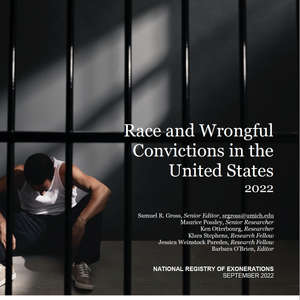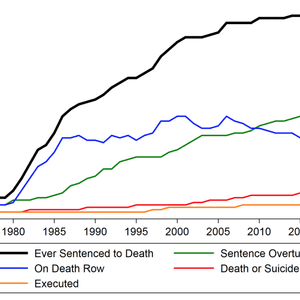
The American Bar Association has released a new publication, The State of Criminal Justice 2017, an annual report examining major issues, trends, and significant changes in America’s criminal justice system. In a chapter devoted to capital punishment, Ronald J. Tabak, chair of the Death Penalty Committee of the ABA’s Section of Individual Rights and Responsibilities, describes significant death penalty cases and developments over the past year. Tabak reports on historic declines in new death sentences and in executions in the U.S.: new death sentences were at their lowest level since 1973, with nearly three-quarters concentrated in just five states — California, Ohio, Texas, Alabama, and Florida; and there were fewer executions than in any year since 1991. The chapter notes that only 27 counties imposed any new death sentences in 2016, highlighting the small number of counties — 16 nationwide — that produced five or more death sentences in the first half of this decade, and describing the “problems permeating” the administration of the death penalty in those jurisdictions. It also discusses the potential for further national declines in new death sentences as a result of the electoral defeat of prosecutors in four of the most prolific death-sentencing counties, and their replacement with prosecutors who have expressed “great skepticism about capital punishment.” Tabak’s chapter also includes sections on “major court cases that will greatly diminish new death sentences,” other key Supreme Court cases, legislative activity involving death penalty issues, and the effects of death penalty moratoria imposed by four governors. Tabak says “[t]here is accelerating recognition of major systemic problems with capital punishment” and that “[t]he more that people know about the death penalty as actually implemented, the more they oppose it.” As a result, he says, the death penalty in practice has increasingly “been attacked by people who have served in the judiciary or law enforcement, taken part in executions, written death penalty laws, or are politically conservative.” Ultimately, he concludes, “our society must decide whether to continue with a penalty implemented in ways that cannot survive any serious cost/benefit analysis.”
(R. Tabak, “Capital Punishment,” The State of Criminal Justice 2017, July 2017.) See Studies.


